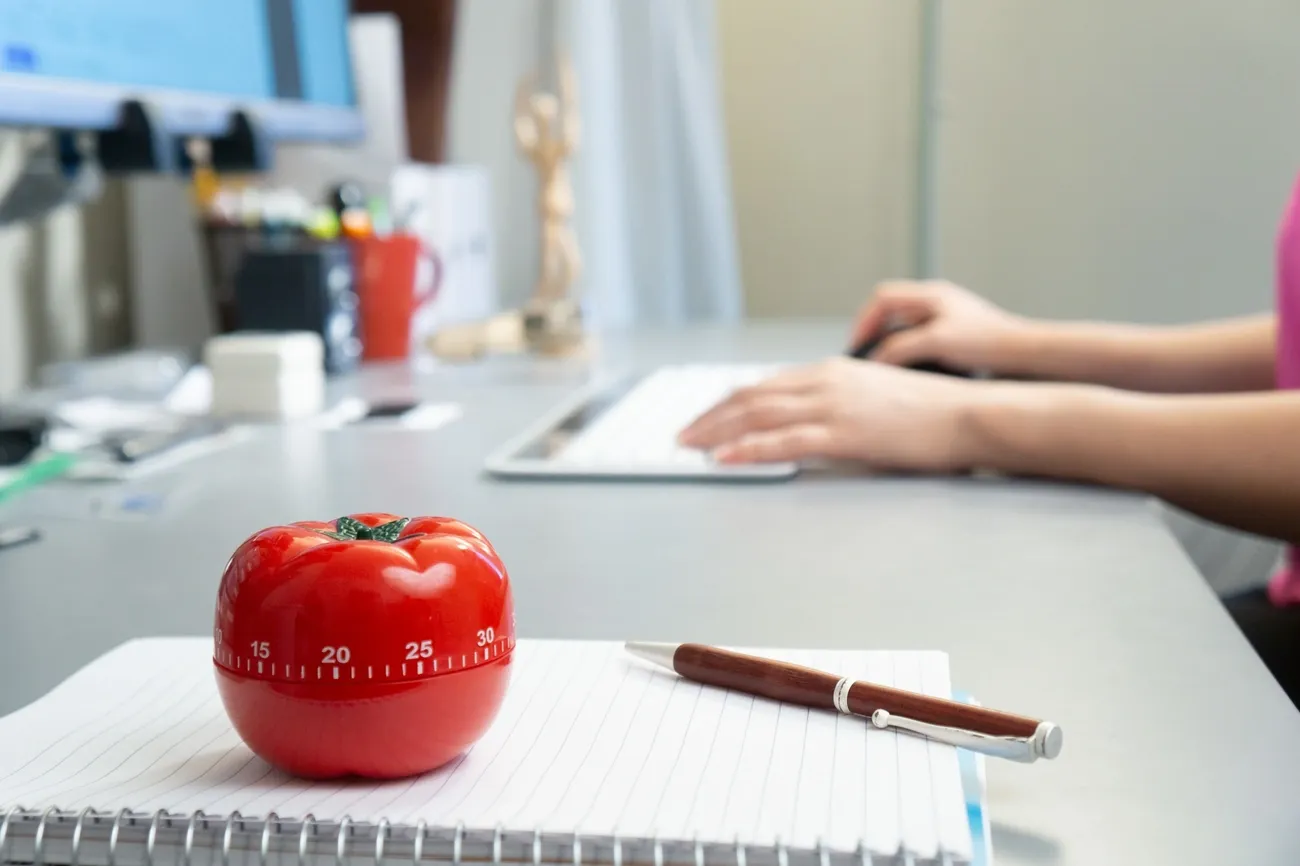The Distraction-Free Study Method: 8 Proven Good Studying Tips That Actually Work
Here’s a surprising fact – multitasking can cut your productivity by up to 40% and hurt your short-term memory. The first step to better study habits starts with knowing what’s holding you back .
Your performance takes a hit when distractions break your focus while learning complex material. These interruptions lead to more mistakes . A distraction-free environment is a vital part of doing well in academics. Research shows students who plan their work avoid the stress of last-minute rushes .
You don’t need superhuman focus to study well. Simple things work – like taking quick breaks when you feel your mind wandering. These breaks help you remember more . On top of that, good sleep plays a key role because lack of sleep messes with your brain’s ability to learn and remember things .
This piece will show you practical study tricks that thousands of successful students use every day. We’ll look at everything from creating your perfect study space to good studying tips that get results. These tips will help turn your frustrating study sessions into something more rewarding.
Set Up for Success: Your Study Environment

Image Source: Dreamstime.com
Your study space can make or break your success before you even crack open a book. The right setup can turn regular study time into something much more productive. This makes tough subjects easier to handle.
Choose a quiet and clean space
You need a study spot away from family traffic and conversations. Students who study in quiet places show higher concentration levels and learn better overall [1]. Look for spots where nobody will bug you – maybe a quiet corner in your bedroom or a home office if you have one.
A messy space will wreck your focus. Research shows students who work in tidy spaces stay more motivated and focused than those surrounded by mess [1]. Just take five minutes to clean up before you start. This tiny bit of effort will help you think clearer and stay focused.
Use natural light or bright lamps
Light affects your study game by a lot. Students who study in natural light typically score grades 25% higher than those stuck in dim spaces [1]. Put your desk near a window to get more daylight. Natural light boosts your mood and keeps stress levels down.
You’ll need good artificial light for evening study or cloudy days. Bad lighting hurts your eyes and leads to headaches that kill your concentration [2]. Pick desk lamps that light up your work without creating annoying glare on your books or screen.
Keep only essentials on your desk
A clean desk helps you stay focused. A drawer or desk organizer keeps everything neat and easy to grab [3]. Keep just what you need for that study session on your desk – books, notes, pens, and maybe some water.
Less stuff means fewer distractions and a clearer mind. Get rid of random papers, decorations, and your phone unless you really need it to study.
Use noise-canceling headphones if needed
Noise-canceling headphones are a great way to get peace when background noise won’t stop. These gadgets block out steady sounds like traffic or humming appliances [1].
Good noise-canceling headphones create your own quiet bubble wherever you are [1]. Students with ADHD say using foam earplugs under noise-canceling headphones blocks almost all sound, which helps them focus better [4].
The right study space forms the foundation of productive learning. Time spent creating your perfect spot pays off through better focus, memory, and learning results.
Mastering Focus: 8 Good Studying Tips That Actually Work

Image Source: STUWO
The right study strategies can boost your learning outcomes without extra time. Using proper techniques makes all the difference between just reading information and remembering it.
1. Use the Pomodoro technique to stay sharp
The Pomodoro Technique breaks your work into 25-minute chunks with 5-minute breaks. This method helps you focus better, cuts distractions, prevents burnout, and keeps you motivated [5]. Small time blocks work better than long study sessions to maintain your concentration. Each Pomodoro lets you tackle one task while giving your brain time to recharge.
2. Try active recall instead of rereading
Rereading notes might be popular, but research shows it wastes time and doesn’t help you remember much [6]. Active recall works better—you test yourself to pull information from memory instead of just looking it over. Your brain builds stronger connections this way, so you remember things better later. Students who use active recall outperform others by a lot [6].
3. Use spaced repetition for long-term memory
Spaced repetition helps you review information at growing intervals to learn better. Scientists have studied this method since 1885 [7]. You learn something new, review it soon after, then check it again at longer intervals (maybe 1 day, 3 days, 7 days, 14 days). Your brain remembers things better when you space out your learning [8].
4. Highlight notes with color-coding
Color-coding stands out as the best way to boost mental activity and memory [9]. Different colors help sort information, making complex stuff easier to understand [10]. You could use red for big events, blue for important people, green for dates, and yellow for key terms.
5. Quiz yourself regularly
Testing yourself works better than passive studying [11]. Making up questions about what you’re learning forces your brain to retrieve information, which strengthens your memory. You’ll also spot gaps in your knowledge that need more work.
6. Study with a partner or group
Groups keep you accountable and bring fresh viewpoints. People who share your goals help you stay focused and beat procrastination [2]. Teaching others makes concepts stick better in your mind, and hearing different explanations helps you grasp material deeply [2].
7. Build a well-laid-out study schedule
Your schedule should balance study time with breaks, meals, sleep, and social life. Study sessions shouldn’t last more than 2 hours per subject since focus drops faster after 90 minutes [12]. Save some time between classes to review recent lectures—an hour right after class beats several hours of study later [12].
8. Take short breaks to reset your mind
Scientists found that regular breaks improve mental performance, task experience, and productivity [13]. Step away from screens during breaks and do something refreshing—stretch, walk, or breathe deeply [14]. These planned pauses help clear your mind, prevent burnout, and let you return to studying with fresh energy [15].
Skyline Academic Resources offers more study tools that work well with these methods. Our resources will help you put these tips to work.
Avoiding Common Pitfalls While Studying
Students can hurt their learning through common study mistakes, even the most dedicated ones. Learning about these pitfalls will help you study better and learn more.
Multitasking reduces retention
Many students think they can study while checking social media or texting, but research shows this isn’t true. Media multitasking hurts your attention and working memory, which affects your academic performance [16]. Students who text during class get grades that are a full letter lower than their focused classmates [16].
Your brain doesn’t really multitask – it just switches between tasks and loses time with each switch. Research shows you make four times more mistakes and take 50% longer to finish when task-switching [17]. Students who keep their phones away during class can score up to a grade and a half higher than those who don’t [17].
Cramming leads to burnout
Last-minute studying might seem like a good idea when deadlines are close, but cramming creates more problems than solutions. UCLA researchers discovered that giving up sleep to study more actually makes academic work harder the next day [18].
Research shows cramming typically results in average test scores, and you’ll quickly forget what you learned [19]. On top of that, it puts too much stress on your brain and increases anxiety, frustration, and mental blocks [19].
Skipping sleep harms memory
Sleep isn’t optional – you need it to learn. Your ability to learn new information can drop by up to 40% without enough sleep [20]. This happens because lack of sleep affects your hippocampus, which plays a vital role in forming new memories [20].
Sleep helps strengthen memories from your day, according to research [20]. The night after you study matters just as much as the night before – this is when your brain combines what you’ve learned [20].
Studying without goals wastes time
Random studying without clear objectives rarely works well. Students who don’t set specific goals often struggle to prioritize material or track their progress [21].
Writing down your goals makes you 42% more likely to reach them [1]. Setting time-bound goals and tracking weekly progress helps you achieve 40% more [1]. The best results come from creating SMART goals (Specific, Measurable, Achievable, Relevant, and Time-bound) for each study session.
Boosting Productivity with Smart Habits
Students who excel know that well-laid-out habits are the foundations of academic success. A systematic approach to organizing work can turn random study sessions into productive learning blocks.
Set SMART goals for each session
SMART goals—Specific, Measurable, Achievable, Relevant, and Time-bound—provide structure to study sessions and maximize efficiency. Students who use this framework are 42% more likely to achieve their objectives [22]. Most college students fail to complete their goals because they don’t plan properly [4]. Your study block should have clear objectives written down, success metrics defined, and specific deadlines set.
Use digital tools like Notion or Todoist
Digital organization tools boost student productivity substantially. Research shows 74% of students find digital tools help them manage their academic workload better [23]. Todoist excels at task prioritization, deadline management, and recurring task scheduling—perfect for planning regular study sessions. Notion serves as a detailed note-taking platform where students can embed videos, links, and build interconnected pages for academic content [23]. These platforms bring all information to one place and reduce the mental load of switching between multiple tools.
Track your progress weekly
Your academic success depends on maintaining high motivation and accountability through progress monitoring. The best tracking systems save time, stay current, and connect to broader academic goals [24]. Weekly check-ins help you spot subjects that need extra focus and celebrate your wins. This methodical approach lets you adjust your pace, speed up when needed, or revisit tough concepts.
Reward yourself after completing tasks
A well-planned reward system makes studying fun and sustainable. Small milestones deserve celebration [25]. You could create a point system for finished tasks to earn rewards—a quick walk, favorite snack, or time with friends [25]. These rewards should fit specific time slots and line up with your goals [26].
Skyline Academic Resources offers specialized productivity tools and templates to help you set SMART goals, track progress, and build effective study habits.
Conclusion
Effective studying isn’t complicated or mysterious. You have all the tools you need to boost your academic performance with proven techniques that work. Your study success starts with a distraction-free environment. A quiet, clean, well-lit space will substantially boost your focus and help you retain information.
The Pomodoro Technique, active recall, and spaced repetition can dramatically improve your learning outcomes without taking extra time. These proven methods help you move beyond passive reading and involve you with the material. Multitasking, cramming, and sleep deprivation can hurt your brain’s natural way to process and store information.
SMART goals before each study session help you track real progress instead of just putting in time. Your studying becomes focused and productive. Tools like Notion and Todoist can streamline your system and reduce the mental load of handling multiple courses and assignments.
Note that becoming skilled at studying comes down to building green practices. These techniques will become second nature once you apply them regularly. Small changes in your approach can lead to substantial improvements in your grades.
You’ll end up working smarter, not harder. The techniques shared in this piece have helped many students turn frustrating study sessions into productive learning experiences. These strategies will help you find the right mix for your learning style and academic needs.
Skyline Academic Resources provides specialized tools to help you use these tips more effectively and reach your academic goals.
FAQs
Q1. How can I create an effective study environment at home?
Choose a quiet, clean space with good lighting. Keep only essential study materials on your desk and use noise-canceling headphones if needed to minimize distractions. Setting up the right environment can significantly improve your focus and productivity.
Q2. What are some proven techniques to improve concentration while studying?
Try methods like the Pomodoro Technique (25-minute focused work sessions followed by short breaks), active recall instead of passive rereading, and spaced repetition to enhance long-term memory retention. These evidence-based strategies can help maintain focus and improve learning outcomes.
Q3. How can I avoid common study pitfalls that hinder my learning?
Avoid multitasking, as it reduces retention and increases errors. Don’t cram before exams, as it leads to burnout and poor long-term recall. Ensure you get adequate sleep, as it’s crucial for memory consolidation. Set clear goals for each study session to make your efforts more purposeful and efficient.
Q4. What are some effective ways to manage distractions while studying at home?
Turn off phone notifications or keep your phone in another room. Use apps to block distracting websites during study time. Communicate your study schedule to family members to minimize interruptions. Creating a distraction-free zone is key to maintaining focus.
Q5. How can I stay motivated and track my study progress?
Set SMART (Specific, Measurable, Achievable, Relevant, Time-bound) goals for each study session. Use digital tools like Notion or Todoist to organize tasks and track progress. Implement a reward system for completing study milestones. Regular progress checks help maintain motivation and identify areas needing more attention.



